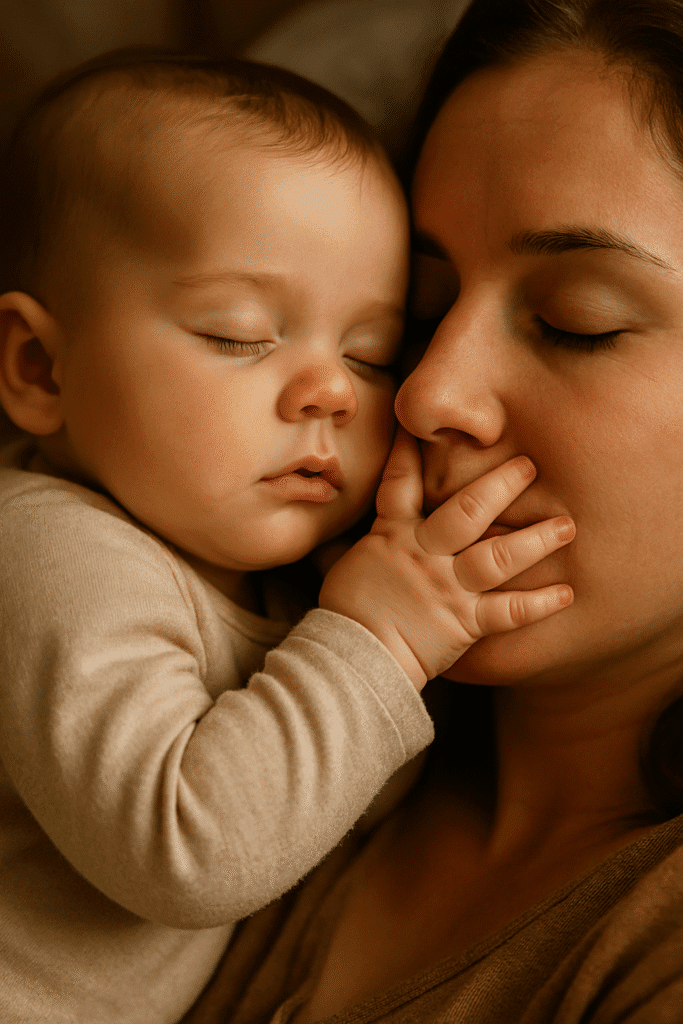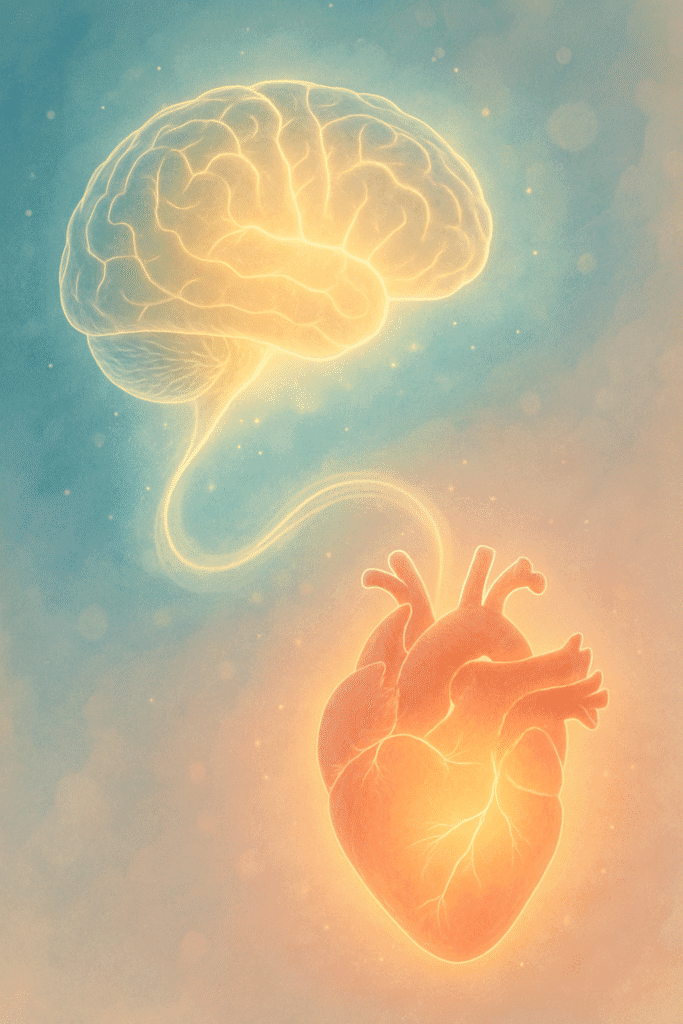Have you ever found yourself marveling at the tiny, yet powerful grip of a baby as they slowly drift off to sleep? It’s a common and utterly adorable phenomenon that many parents and caregivers experience. But have you ever wondered why babies grab your face when falling asleep?
A Touch of Comfort: The Power of Physical Connection
The Role of Touch in Development
From the very moment they are born, babies are programmed to seek connection through touch. This instinctual behavior isn’t just for affection; it’s crucial for their development. Through the simple act of touching, they’re forging emotional bonds, feeling a sense of security, and stimulating growth and sensory integration.
Think of it as their way of exploring the world and reinforcing that unspoken bond with their primary caregiver. It’s fascinating how these early interactions lay the groundwork for their emotional and physical development.

Seeking Security in a Big World
When a newborn leaves the womb, they enter a vast and overwhelming world. This sudden change makes them seek the comfort and reassurance they once felt in the cozy confines of their first home.
By grabbing your face or fingers, they’re not just seeking a physical connection; they’re asking for a reminder of the safety and warmth they’re starting to miss. This simple act is their way of providing themselves with a sense of security as they transition to sleep.
It’s fascinating how these tiny beings, without words, communicate their needs so effectively, drawing us closer into their little universe, ensuring we understand that our presence is their ultimate safe space.
Communication Through Touch
Expressing Needs Without Words
Before babies master the art of speech, their ability to communicate is understandably limited. They can’t yet form words or articulate their needs and emotions through verbal skills. So, they turn to what they know best: non-verbal cues.
In this silent conversation, every grab of your face is a heartfelt message. It’s their way of expressing, “I need you,” or “I love you,” tapping into the universal language of touch. This development of communication is not just fascinating; it’s a fundamental bridge between their world and ours. It’s how they rely on us to understand their needs and provide comfort and reassurance.
Every time a little one reaches out to touch your face as they drift to sleep, they’re not just seeking comfort; they’re reinforcing a bond that’s about more than just physical proximity. It’s about emotional connection, learning, and mutual trust. It’s a reminder that, in their eyes, you’re their entire world, a source of endless love and security.
Building Bonds
In the journey of early parenthood, the tactile interaction between a baby and their parents plays a pivotal role. It’s more than just a sweet gesture; it’s a beneficial and essential part of their bonding process.
Every gentle touch, every small grasp of your face by those tiny hands, significantly strengthens the bond between child and caregiver. This simple act of reaching out is the foundation of a deep, unspoken connection that is critical for fostering a healthy relationship.
It’s these moments, when your baby grabs onto you as they drift off to sleep, that a profound exchange occurs. Without words, they tell you of their trust, their need for security, and their love for you.
As a parent, it’s an incredible feeling to know that such small gestures can have a massive impact on your child’s emotional and psychological development. This tactile bond is not just beneficial; it’s essential for laying down the groundwork of a loving and secure relationship that will support them as they grow.
Sensory Exploration: Discovering the World One Touch at a Time
A World of Sensations
From the moment babies enter this world, they embark on a constant journey of discovery, using their senses as primary tools for learning. Touch, developed from birth, is crucial for their cognitive and emotional development.
As they explore the world around them, grabbing your face while falling asleep is more than seeking comfort; it’s a way to connect and understand their surroundings. This act of exploration is essential, laying the foundation for their growth and how they perceive everything around them, demonstrating the importance of these early stages of life in shaping their future.
The Fascination with Faces
From the very start, babies are naturally drawn to faces. It’s not an exception; it’s a rule. To them, a face is one of the first things they focus on and recognize. This innate curiosity leads them to exploring and memorizing the features of the people closest to them, most often their parents or primary caregivers.
By associating these familiar faces with comfort and care, babies find reassurance and warmth. When they reach out and grab your face as they drift to sleep, it’s their way of connecting with that comforting presence, ensuring they feel safe and loved in a big, new world.
The Science Behind Why Babies Grab Your Face When Falling Asleep
Hormonal Responses: Oxytocin at Play
When a baby grabs your face as they drift off to sleep, a fascinating play of nature unfolds. This simple act triggers a release of oxytocin, often dubbed the love hormone. This isn’t just a sweet gesture; it’s a chemical reaction that deepens the bond between you two.
Oxytocin not only enhances the feeling of attachment but also increases mutual affection, making these moments incredibly beneficial for both of you. It’s nature’s way of strengthening connections, ensuring that the hold you have on each other, both physically and emotionally, remains close and secure.

Through this oxytocin-fueled interaction, the foundation of trust and love is laid, illustrating how essential these snuggle sessions are for your relationship’s growth.
The Calming Reflex
When a baby grabs your face as they drift off to sleep, a beautiful dance of biology and emotion comes into play. This simple gesture activates a calming reflex that is deeply ingrained in their instinct.
For infants, the warmth of your skin, the sound of your heartbeat, and the gentle pressure of their hand against you are more than just comforting; they mimic the conditions of the womb.
This environment, so familiar and secure, helps them to relax and fall asleep easily. It’s a reminder of the profound connection and trust between you and your little one, where a mere touch reaffirms safety and love.
Nurturing Through Nature
Instinctive Behaviors for Survival
At the core of a baby’s behaviors is an instinct that has evolved over millennia. When your little one grabs your face as they drift off to sleep, it’s more than just a cute act; it’s rooted in a deep-seated need to form strong attachments. This simple gesture is essential not only for their immediate comfort but for their survival and overall well-being.
It’s a natural behavior that ensures babies maintain a close bond with their caregivers, providing them with the security they crave in a vast, unfamiliar world. As a parent, witnessing this instinctual need for connection reminds us of the powerful role we play in our children’s lives, offering a sense of purpose and unparalleled joy.
A Universal Experience
Across cultures and throughout history, the significance of bonding and development between a baby and their caregiver has been recognized. This simple, yet profound act of a baby reaching out to touch your face is not just adorable; it serves as a reminder of the universal need for connection and love.
Whether it’s the gentle grasp of a newborn or the tiny fingers curling around yours, these moments transcend language and geography, highlighting a shared human experience. It’s a natural demonstration of trust and affection that lays the groundwork for a lifelong relationship.
As someone who has spent countless hours observing and participating in these early interactions, I can attest to their transformative power. They’re not just acts of curiosity; they’re the building blocks of emotional intelligence and social development, offering a window into the innate wisdom of our youngest humans.
Conclusion
In conclusion, the next time a baby grabs your face as they fall asleep, remember, it’s more than just a cute gesture. It’s a complex interplay of emotional, cognitive, and physiological needs being expressed in one of the most ancient and natural ways possible.
This tiny grasp is a testament to the power of touch in human connection and development, reminding us of the deep bonds that form the foundation of our relationships.

 Medically reviewed by
Medically reviewed by